Non-urgent government operations are closed December 24 to January 1, reopening January 2. View available services during this period.

Donald Stewart Ethell was born July 1937 in Vancouver, British Columbia. Committed to the welfare of others, Colonel Ethell’s humanitarian efforts and military career have had international impact and have brought distinction to the reputation of Canadian peacekeeping.
In 1955, Donald Ethell joined the Canadian Army at the young age of 17. Private Ethell immediately received his basic training as a rifleman in the Queen’s Own Rifles of Canada at Currie Barracks in Calgary. When the Queen’s Own Rifles of Canada was removed from regular army service in 1970, all members of the battalion including Ethell changed their affiliation to the Princess Patricia’s Canadian Light Infantry. He quickly rose through the non-commissioned officer ranks to that of warrant officer until being commissioned as an officer to Her Majesty’s Forces in 1972. This move was to foreshadow a distinguished career in the military service.
Colonel Ethell consistently demonstrated his natural ability for leadership. He is a veteran of 14 international peacekeeping deployments with service in Cyprus, Lebanon, Syria, Jordan, Egypt, Israel, Central America and the Balkans.
Between two tours of duty in the Middle East, for the years 1987 to 1990, Colonel Ethell served as the director of peacekeeping operations at National Defence Headquarters in Ottawa. This period of time encompassed a significant increase in Canada’s commitment to peacekeeping and peacemakers with Canadian Forces and individual officers being deployed to Afghanistan, Pakistan, Iran, Iraq, Namibia and Central America.
In support of Canadian-sponsored efforts to bring peace to the Central America region, Colonel Ethell frequently visited Central America to brief military and political leaders on the benefits of peacekeeping missions. This led to his secondment to United Nations headquarters in New York to conduct in-theatre reconnaissance of five Central American countries associated with the Arias Peace Plan. The Ethell plan was accepted by the UN Under-Secretary General for Peacekeeping as the initial operations plan of the UN Peacekeeping troops assigned to the area. Additionally, then Secretary of State for External Affairs, Right Honourable Joe Clark, tabled the plan in the Canadian House of Commons.
Following his tenure as the director of peacekeeping operations, Colonel Ethell returned to the Middle East where he served as the chief of staff and deputy force commander of the Multinational Force and Observers during the 1990-1991 Persian Gulf War.
Colonel Ethell then returned to Canada to commence retirement leave. However, within one month, he was ordered back on duty to Yugoslavia as the head of the Canadian Delegation for Canadian Forces officers assigned to the European Community Monitoring Mission in Yugoslavia. This tour, in early 1992, overlapped the commencement of yet another war in Bosnia-Herzegovina, and the subsequent arrival of the large United Nations protection force. In due course, he returned to Canada, and finally retired from the Canadian Forces in July 1993.
While in the service, Colonel Ethell also participated in many domestic and international peacekeeping symposia in Moscow, Madrid, New York, San Jose and Tegucigalpa. He continues to serve as a defence analyst to the Canadian Broadcasting Corporation and other media organizations.
Colonel Donald Ethell is considered to be Canada’s most experienced and decorated peacekeeper. Honours and awards received include the Order of Military Merit (officer grade) in 1982 and the Most Venerable Order of the Hospital of St. John of Jerusalem (serving member grade) in June 2001. In 1986, he received the Meritorious Service Cross for his action in planning and commanding operations associated with prisoners of war and body exchanges between the Israelis and Syrians in 1984, and the passage of Palestinian prisoners from Israel to Lebanon through Syria in 1985. He also received the Canadian Peacekeeping Service Medal in 2001, as well as various campaign medals for his service on peacekeeping missions, 100th and 125th Anniversary medals, the Special Service Medal and the Canadian Forces Decoration.
Following his military retirement, Colonel Ethell found a new focus and more time for humanitarian efforts. He became involved with CARE Canada, providing consulting services to staff responsible for five refugee camps in Eastern Kenya and Somalia. Despite being witness to many atrocities throughout his military career, this exposure to “matchstick” children and many others dying of AIDS-related illness and starvation left a haunting impression. This memory remains foremost in his mind as he currently serves as Alberta’s director of the International Committee for the Relief of Starvation and Suffering, ICROSS. He continues his efforts in providing relief to the estimated 15,000 people in Africa who succumb to starvation or AIDS-related illnesses each week.
In addition to his concern for the tragedy in Africa, Colonel Ethell is active in pursuing issues regarding Canada’s veterans. As a member of the Friends of Colonel Belcher committee in Calgary, he is committed to many activities associated with the move of the veterans from the existing Colonel Belcher Veteran Care Centre to a new care facility in 2002. Additionally, Colonel Ethell serves as one of four committee chairs for the recently formed Canadian Forces Advisory Council, which is responsible for investigating and reporting on all aspects associated with Canada’s veterans. He also serves as national president of the Canadian Association of Veterans in United Nations Peacekeeping.
Colonel Ethell became president of DEthell Consulting International Inc, through which he provided experience and expertise for United Nations peacekeeping operations in Haiti, Rwanda and Angola, and with the United States Special Forces.
He has served as a member of the Queen’s Own Rifles of Canada Association and Princess Patricia’s Canadian Light Infantry Associations, Royal United Services Institute of Alberta, Calgary Military Museums Society and the Royal Canadian Legion.
